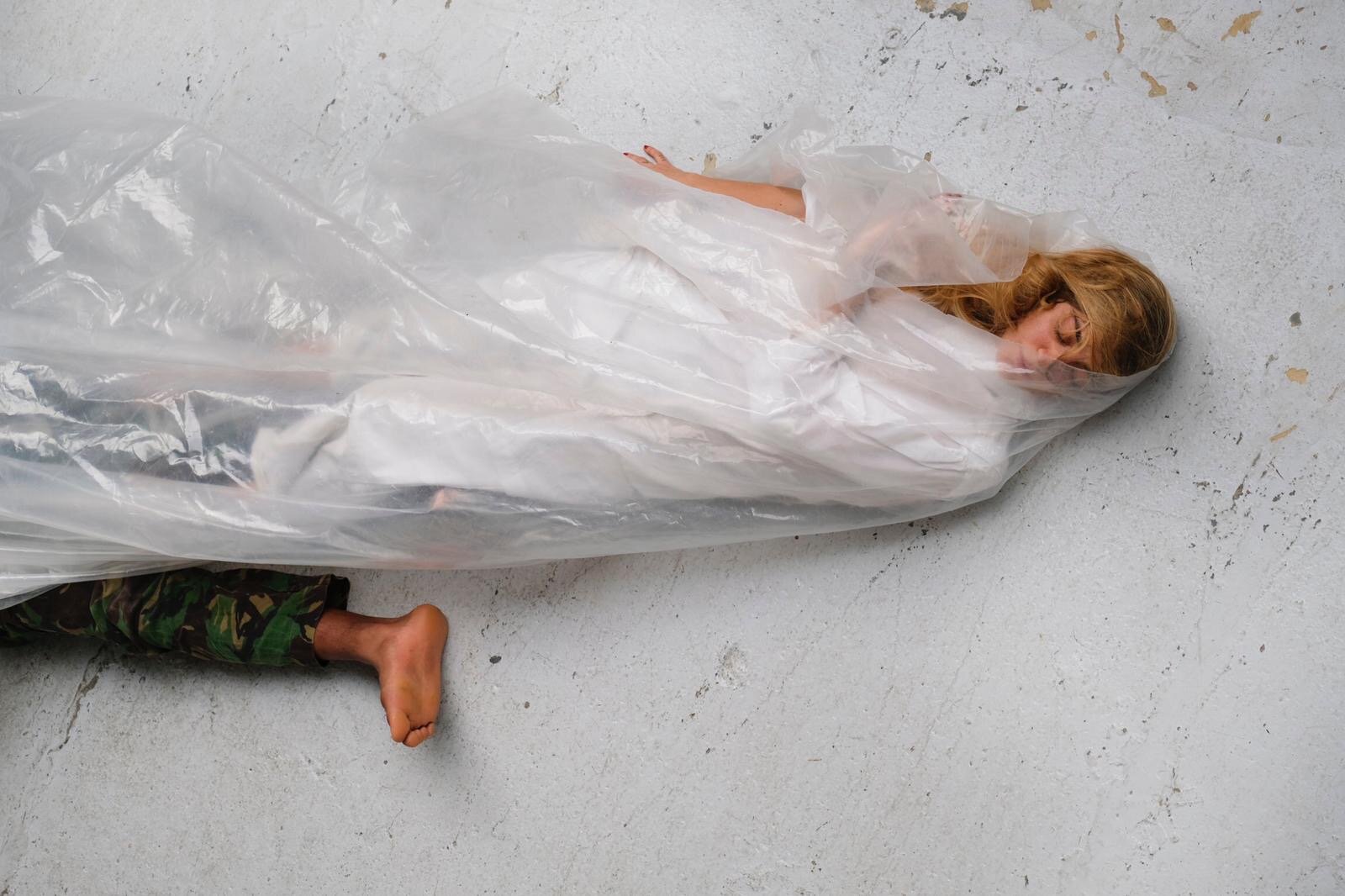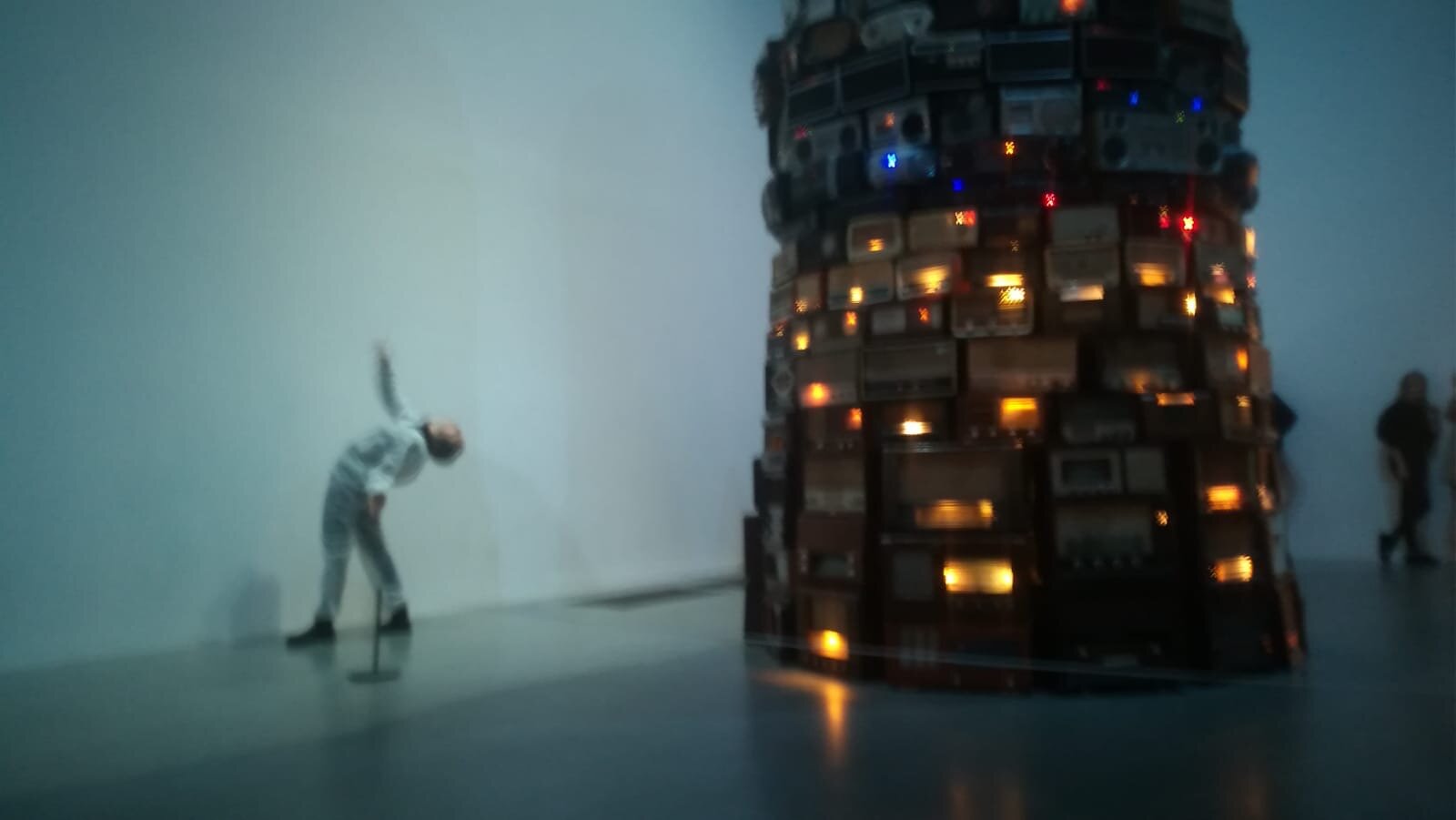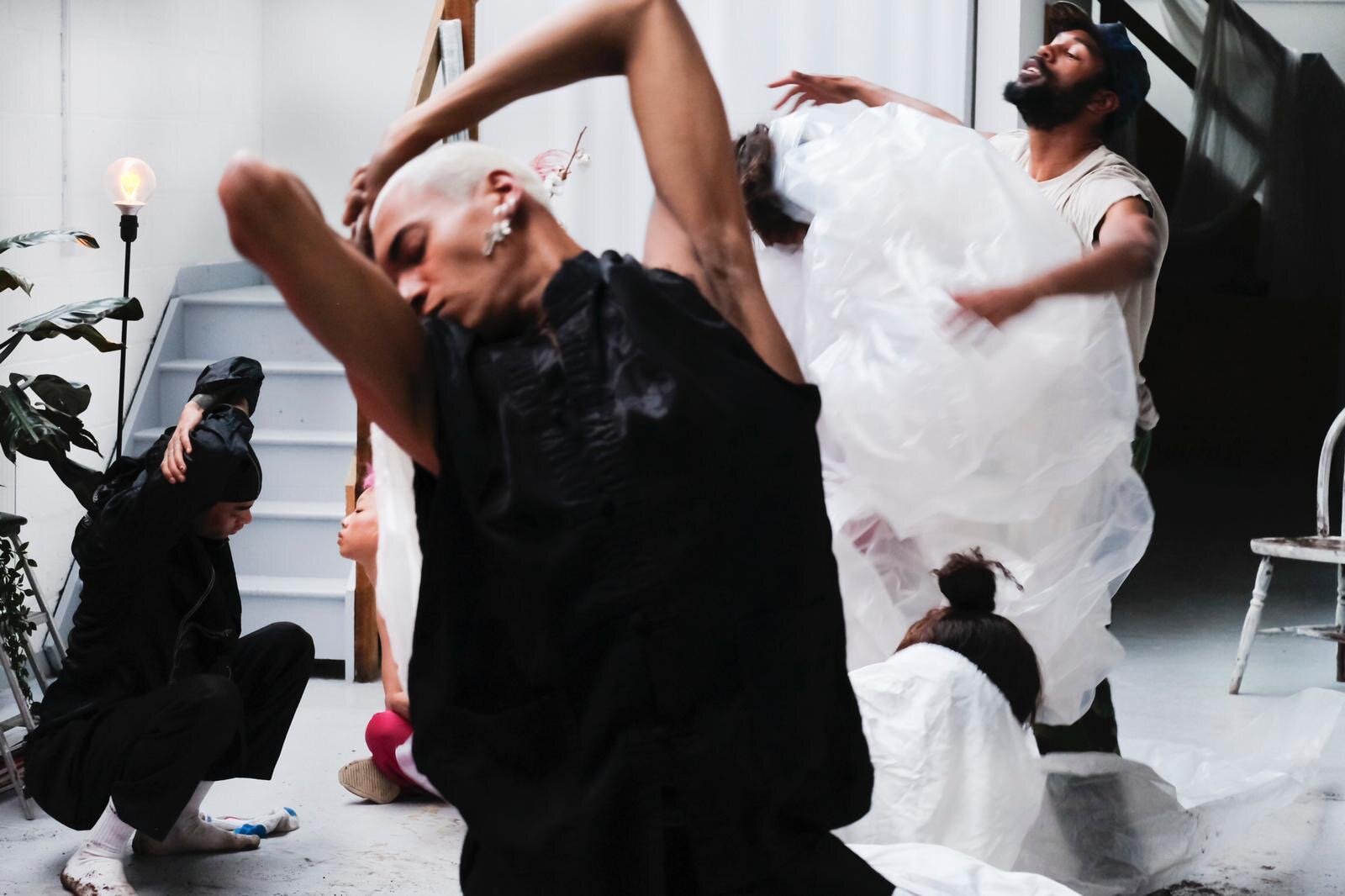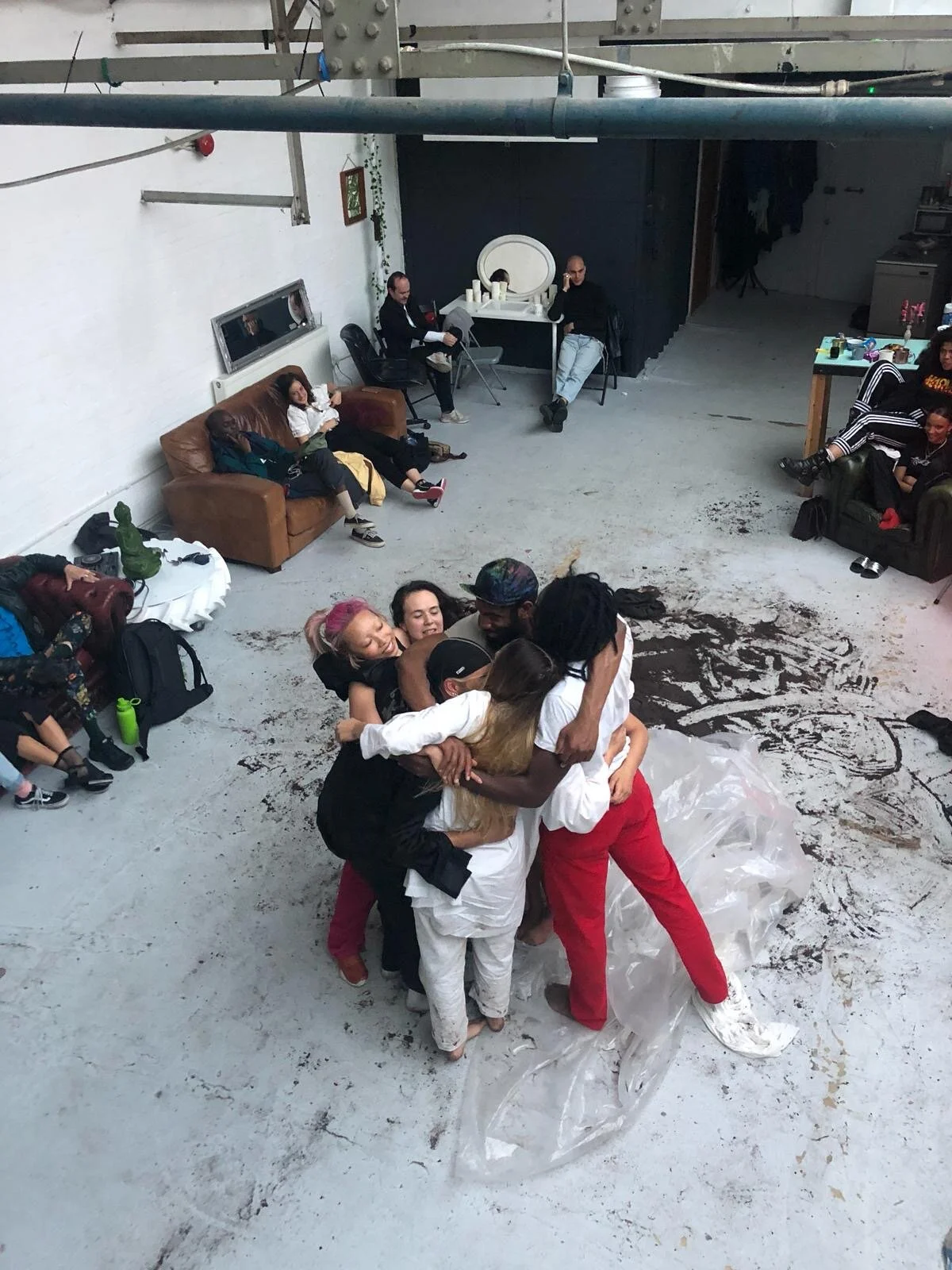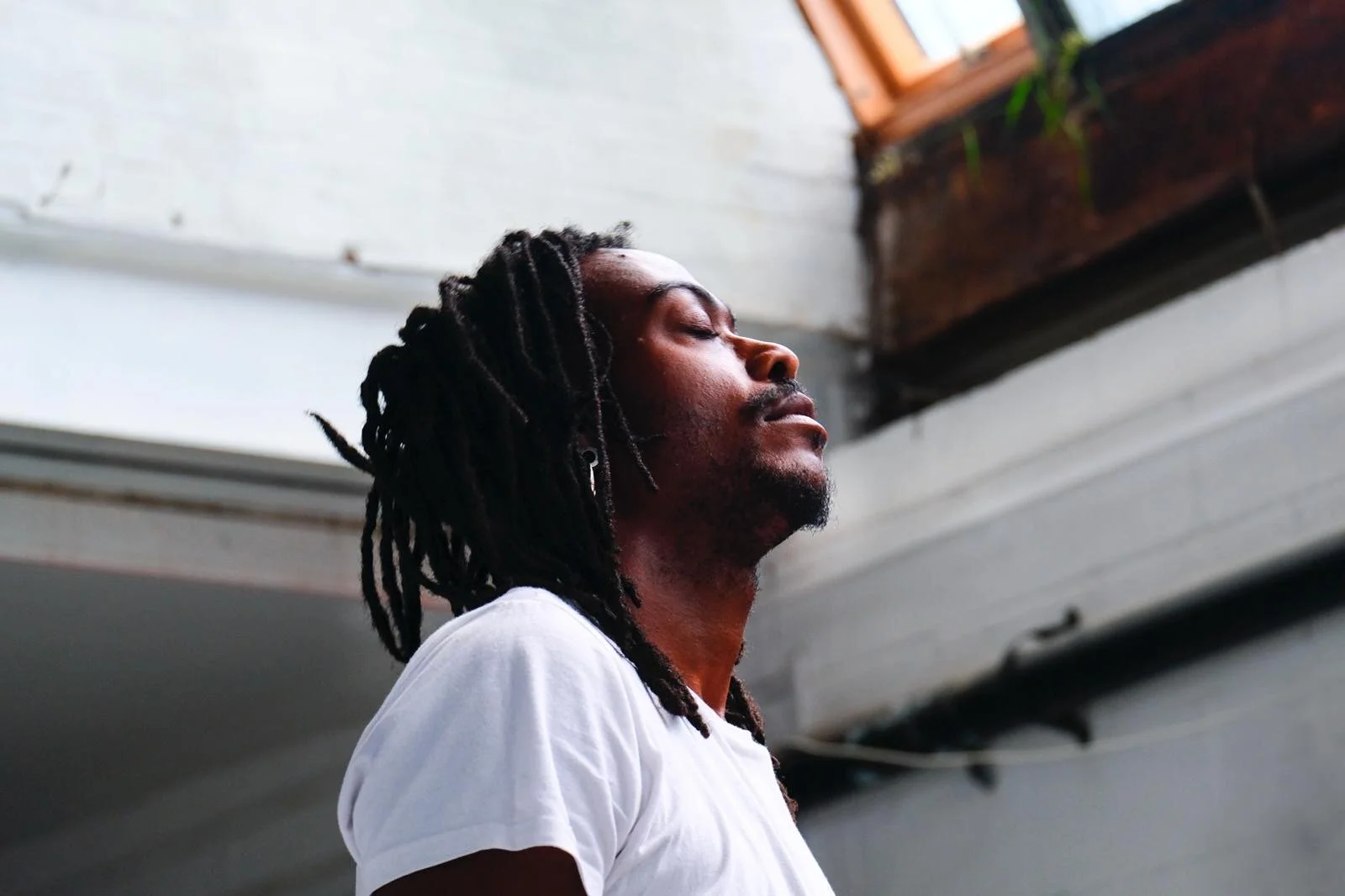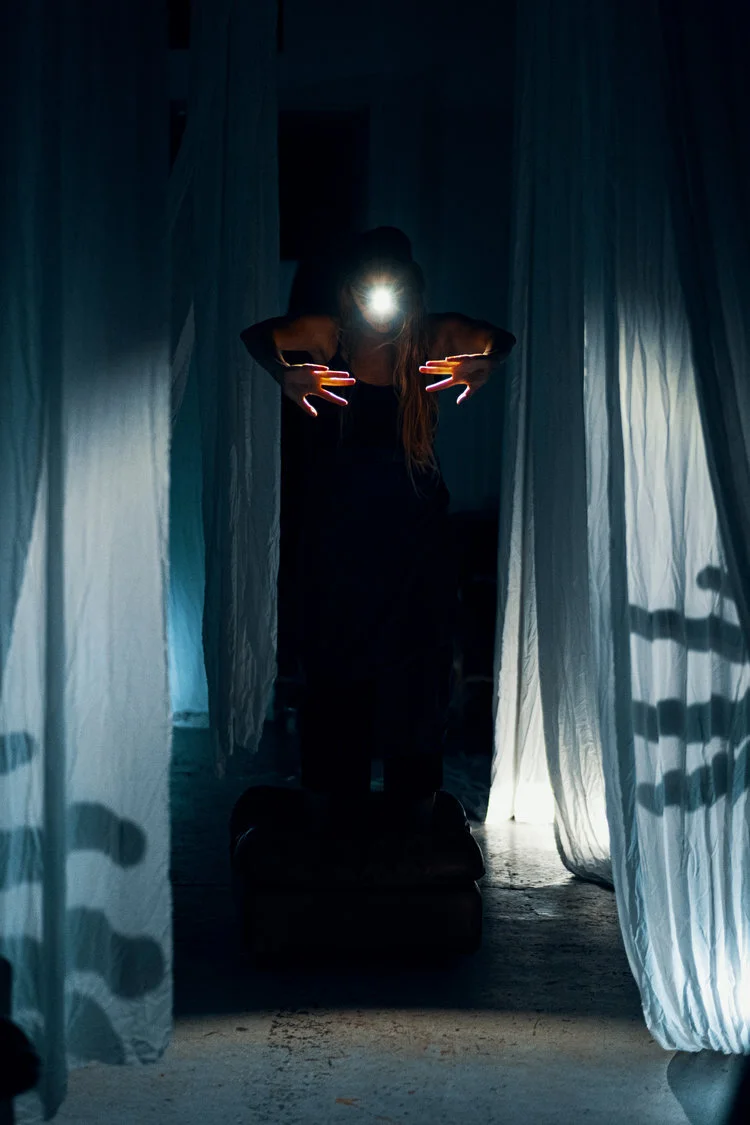Home From Home: Creating space for people to be themselves – Ekin Bernay
HomeWork 0 - courtesy of the artist
Ekin Bernay is a dance and movement psychotherapist and performance artist from Turkey and based in London. Ekin’s work focuses on the healing qualities of performance art and regularly utilises the audience as part of her work. She became a Nike Athlete at age 18 and has performed internationally with the likes of Sadlers Wells, Royal Academy of Arts, Tate, The Place and Perform Istanbul.
I first met Ekin almost two years ago through my work at Tate and was transported to her previous performances by the way she talked about her work. I finally had the opportunity to experience her practice for myself in 2019 as she delivered a participatory workshop focused on the theme of play. With all things pandemic related, it had been some time since we caught up and a chat over zoom was the perfect opportunity. We met virtually from my home office and her comfortably perched on what looked like a beanbag or a number of cushions as we chatted about how crazy things were before settling into the interview.
Also since the interview, I’ve finally had an opportunity to virtually attend HomeWork.
PO: How would you describe your practice currently?
EB: It’s a lot about healing, it’s sometimes about my own; to digest a certain situation or just clear a build-up of everything. When other people are present, I try to activate them so that the experience is really felt. I’m a dancer and a psychotherapist and so I try to take tools from therapy and embed them in my work. Almost all of it is centred around the body and movement and can have quite a psychological quest. I do call myself a performance artist – I don’t fit perfectly within this, but I’d mostly situate my work here.
Ekin in the Media Networks display, Tate Modern - courtesy of the artist
PO: More than ever we are all attached to our devices, as a performance artist, how do you feel about people using their phones whilst you’re performing?
EB: There are a few ways to look at maybe their documentation of it is somehow making them part of the work too. I’ve only had one performance in Istanbul where we (11 artists) took over a building for 28 days and there were no phones – it definitely limited the number of people that it was able to reach. But I love photography and video work and I’m not 100% again it, having said that to be able to create moments where no-one wants to document it depends on the power of the performance. It depends on how welcoming the performance is, how well I’m holding the space. I do not personally enjoy it when I go to something and everyone is documenting, and I feel this most when it is music. Overall, it’s about the intention because they’re possibly taking a part of it. I’m open to how we experience work; we have to be mindful of the choices we make in the space. It’s about how you hold the phone, how you look at the screen, this lets me know you’re present.
HomeWork 0 - courtesy of the artist
PO: I think back a lot to the first time I met you and you spoke about this performance in Istanbul, although I wasn’t present, it was very vivid. Emotionally - white room etc.
EB: That was quite powerful, the room was holding something that was building and changing throughout the process. There were words echoed within the room, one after another, something happened to the space. Not just to me, not just to the wall or physical space. It fills up the room. There was sound piece that I made using my breath and whistles and the room smelled like lavender. There was the intention to create a space that people wanted to come in and share and feel safe to do.
I asked people “What do you want?” in Turkish because we don’t get asked that question often. We had over 900 sharing responses to the question. People said “I’ve never asked myself this before” - it was about getting this out of people. It was quite personal because I don’t always know what I want. I want it all, so it becomes difficult. This was for the people, for them to have an experience that they could take with them. It was a lot of holding the space. I had to centre myself for the 28 days of the performance and I had the choice to sleep in the room and the building, but I wanted to come out. I wanted the work to live without me being there. People would leave me notes “I came to your room and you weren’t there”, “I slept in your room and I felt this”. It was heavy and the end of this I did feel like “I’m done with this for now”.
What happened after was that I sold this work, so it had the right to be re-performed. It was the first work I’d ever sold and perhaps the first (performance work) in Turkey from what I know and it’s in a lovely collection and it’s alive right now. The box will be set up in Istanbul in January 2020 (same original box) and we’ll see what happens over the year.
HomeWork 0 - courtesy of the artist
PO: It’s really clear that relationships are important in your work, you’ve mentioned that the work wouldn’t exist without people. One of your earlier works My Sandcastles was an incredibly moving performance which speaks to broader themes of self-care and relationships, particularly paying homage to your father.
EB: I look back and still love that performance. That was something I felt was really real and I wouldn’t change anything about it. The room was really heavy, the air was heavier. It was like a state of trance and going into this other place and being 100% vulnerable and open about what it was that I was feeling. I was feeling hurt, feeling loss, channelling ancestor’s loss and a lot of trying to put myself back together. With the casts I felt like I was taking screenshots of certain moments. Those moments can live on their own, but it means something. We are based in restriction and helplessness, facing that we are mortal, and that life is impermanent and the sadness that comes with that.
I was Inspired by my dad going through cancer and the loss of one of best friend’s dad all within a year. It explores what a father symbolises and the loss of that. For me it was like he was someone almost invincible until he had cancer. He’s been through a lot, we’ve been through a lot. At a point in the past he was in prison for political reasons. There’s been a lot in our relationship that has been held on both sides. The casting process turns into a meditation, there is pain that builds up and I don’t go in with the intention of trying to make it better, but once it comes off this is how it feels. It’s like shedding the skin, remaking the body externally and internally.
There were a lot of tears not just from me but also from the people in the room. There was a woman watching who at times had her eyes closed during the performance. I didn’t know her and after she came over to me and turned out to be a friend of my mums, she had lost her daughter that year. She was there for the whole two hours and didn’t leave and said that’s exactly what the process felt like with my daughter. I asked myself how can I create space for people to be themselves? I’m going in with my everything, my past, my possible futures, I’m sometimes doing things that other people might consider unusual. It took a lot of fight to keep that. We need spaces to let go, performance space. There’s a place I go, and I try to bring people with me.
HomeWork 0 - courtesy of the artist
PO: Over the past year you’ve been running a series of at home performances called HomeWork - I'm gutted that I’ve missed them through either getting lost or having travelled, tell me how this developed?
EB: It started last year 19 June - there’s something that happened before, called Where is Home? which was about collecting things (sound) from people, it made me think of home a lot which definitely led to homework. Another important inspiration was a workshop at Rambert called The Playground. Choreographers are matched with dancers and at the end of the two hours there is a sharing. I was on a plane going to a residency in Portugal when the idea came to me; could I invite people I want to be around, think with, explore with, into my home and experience this live art moment? It was about redefining the idea of homework, taking it as seriously as homework, if I was a good student! [laughs].
My questions were why are we not performing at home? Why are we not playing enough? There are people who take part that aren’t live artists – the first time. It’s creating a safe place within home, to see where it goes, we are a community, we’re already something that people come into. Each homework has a loose theme, this theme might be a material and something we do with it. The first was Earth and plastic, the second shadow and the third was Rebecca Bellantoni’s work. She was invited to set the tone, which was a lot about loving yourself, being real. Blackhaine set the mood, Rowdy ss held the sonic space whilst I held the physical space. It’s become a way of being with artists, a method. Even if they go away, I still feel it. Its raw and physical
HomeWork 0 - courtesy of the artist
PO: You touched on it with what I think is a beautiful question and one I like to ask a lot “where is home?” We’ve talked a little about this before but what is your relationship with this country (UK)? How have you been able to find your place or not?
EB: It’s been on my minds for years and years. I’ve felt very conflicted about what to do. It hasn’t been able to answer yet. There’s progress on it but I still cannot see where I want to be, these are questions that still go on. The curiosity of not settling into something. I ask myself what am I looking for, is this a u2 song? I moved here sept 2008, until two years ago I was very split, I found a way of existing in the two countries together, it has helped me calm down a lot in making a choice. I’m based in London, normally I’d go back once or twice a month. I don’t feel like I’m leaving something behind, I can still go back and share with friends and family. There’s sometimes a certain guilt coming from turkey, I don’t want to just give all of myself to here because I have a responsibility, a duty to the people I grew up with, the land that I came from.
Another thing that has helped keep me calm is the group of people I live with now, we are the same tribe. I had this feeling, I wondered what this is? it feels familiar, it feels like home. The sense I had with them was similar to what I had back in Turkey. They’ve helped me to feel like I belong even though it took me some time. Relationships also change this, I was with someone for 6 years and he became like family. I just love, love; I believe it’s our only chance to make and live a better and more beautiful life. All the problems that arise go back to a lack of love or exchange as humans. I have to admit, I’m finding it difficult right now because I can’t gather people around for my performative rituals, maybe my reach shouldn’t just be on a physical basis?
PO: What one song has been on your mind or speaks to your emotions in the current climate?
EB: Lovely day by Bill Withers - because it’s not a lovely day, I was thinking of this song prior to lockdown from the last group I worked with. Maybe it’s also a re-wiring the experience, it’s a contradiction.
Connect with Ekin on instagram.
